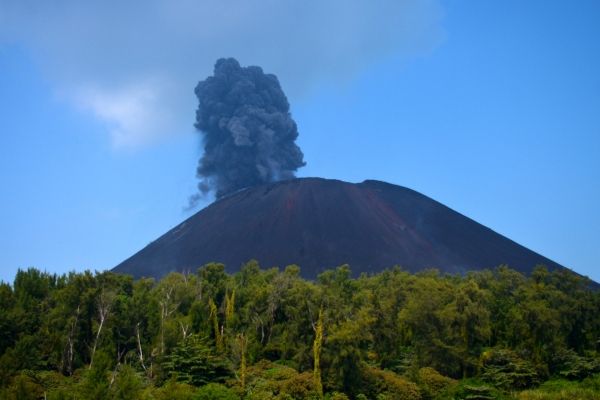The dramatic collapse of Indonesia’s Anak Krakatau volcano in December 2018 resulted from long-term destabilising processes, and was not triggered by any distinct changes in the magmatic system that could have been detected by current monitoring techniques, new research has found.
The volcano had been erupting for around six months prior to the collapse, which saw more than two-thirds of its height slide into the sea as the island halved in area. The event triggered a devastating tsunami, which inundated the coastlines of Java and Sumatra and led to the deaths of more than 400 people.
A team led by the University of Birmingham examined volcanic material from nearby islands for clues to determine whether the powerful, explosive eruption observed after the collapse had itself triggered the landslide and tsunami. Their results are published in Earth and Planetary Science Letters [1].
Working with researchers at the Bandung Institute of Technology, the University of Oxford and the British Geological Survey, the team looked at the physical, chemical and microtextural characteristics of the erupted material. They concluded that the large explosive eruption associated with the collapse was probably caused by the underlying magmatic system becoming destabilised as the landslide got underway.
Read more at: University of Birmingham
Photo Credit: SEI via Pixabay


